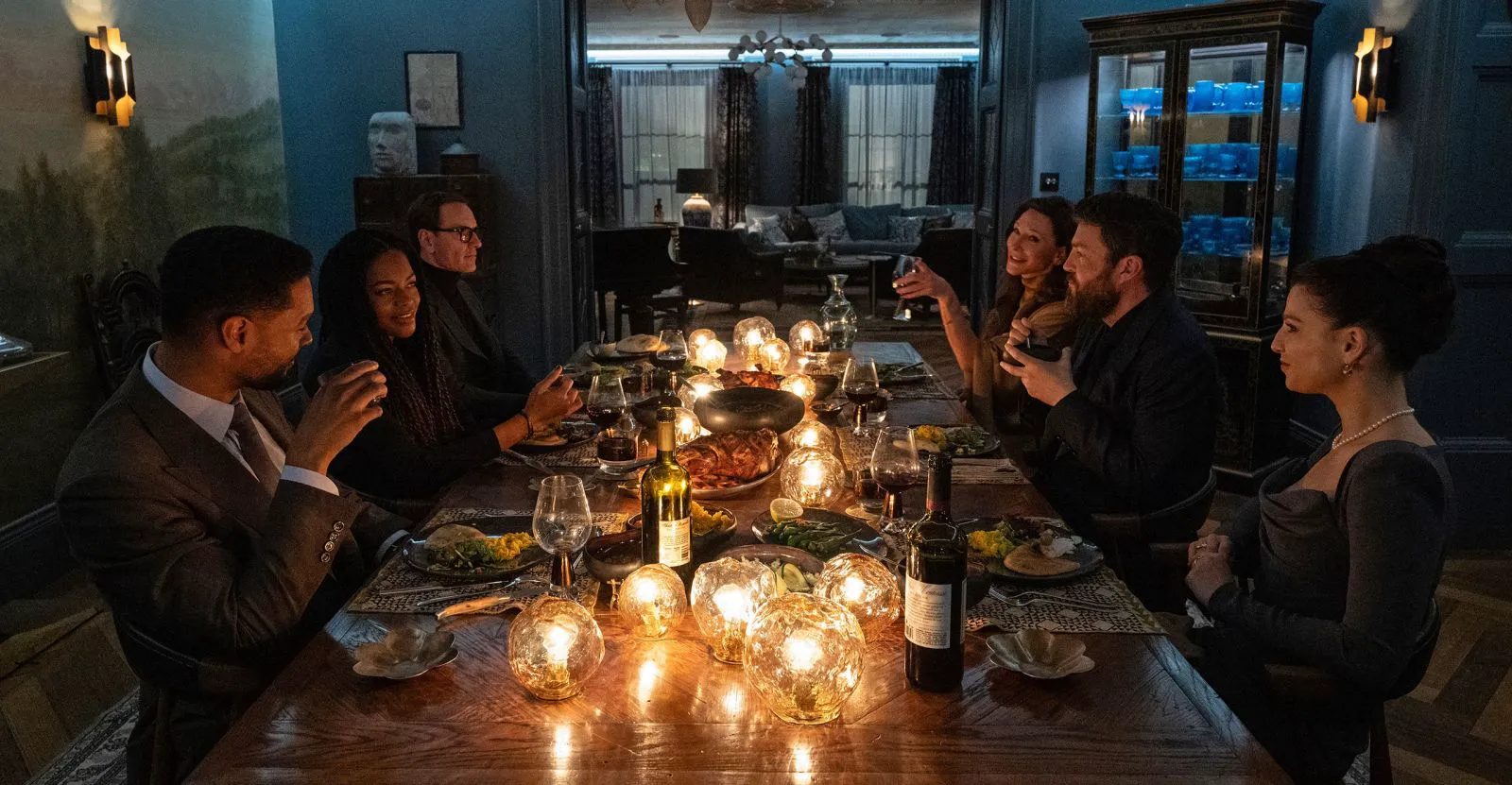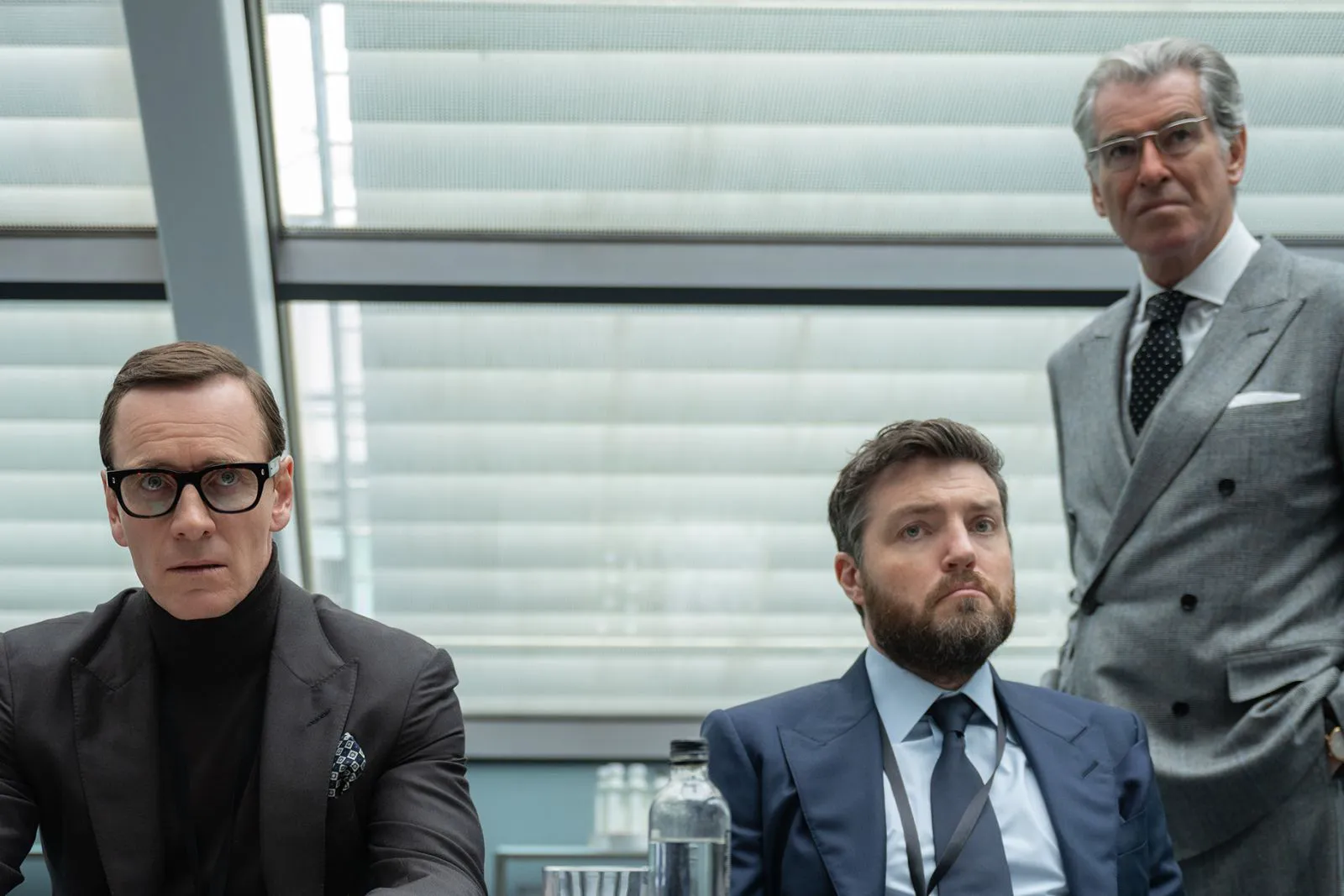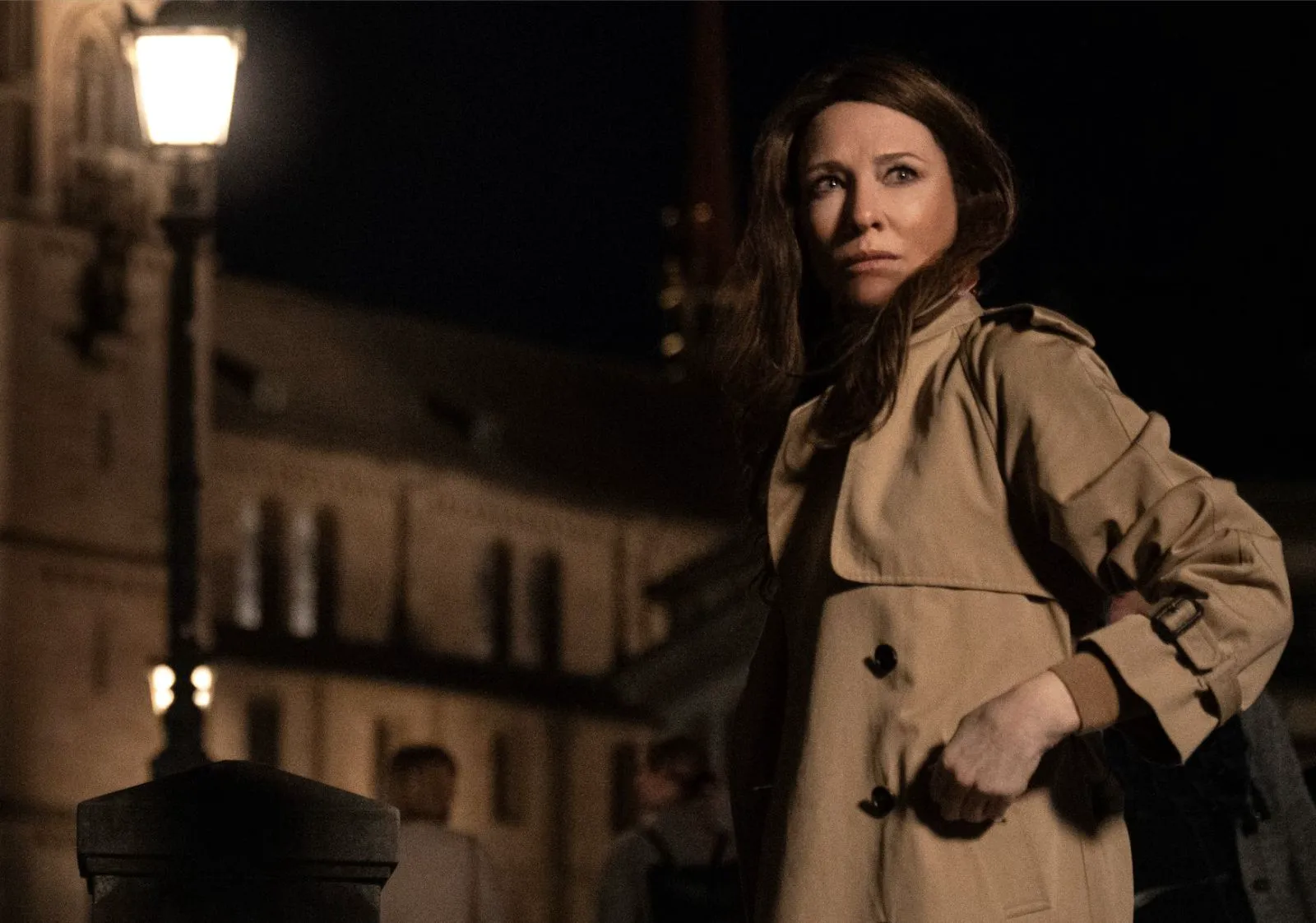Black Bag: A Tense Spy Thriller with a Romantic Twist
The camera shadows George Woodhouse (Michael Fassbender), a British intelligence agent. In a dimly lit bar, Phillip (Gustav Skarsgård) hands him a list bearing the names of five colleagues, including George’s wife, Catherine Woodhouse. One of them is a traitor who must be neutralized urgently. A top-secret malware, “Severus,” capable of destabilizing nuclear facilities and triggering an international catastrophe, has been stolen from a lab.
George gathers the listed colleagues for a dinner party at his home. He subtly laces one of the dishes with a “truth serum,” discreetly warning Catherine which one to avoid. The suspects assemble around the table: Zoe (Naomi Harris), the office therapist; Clarissa (Marisa Abela), an operations officer; James (Regé-Jean Page), a senior officer; and the cantankerous Freddie (Tom Burke). As the evening unfolds, all evidence seems to point to Catherine’s involvement. However, George is willing to take risks to uncover irrefutable proof.
The core of George’s character is simple: he values truth and loves his wife. The next 90 minutes will reveal which he cherishes more.

Michael Fassbender as George in “Black Bag”
Soderbergh’s Exploration of Trust and Monogamy
Director Steven Soderbergh seems to operate without weekends or vacations. Fresh off the premiere of his indie horror film “Presence,” he’s already storming theaters with the spy thriller “Black Bag.” In both projects, he also takes on the role of cinematographer. In “Presence,” he experimented with perspective, filming the entire movie from a ghost’s point of view. In “Black Bag,” he employs his signature style of blurring light sources and methodically following the characters. With such prolific output, Soderbergh isn’t fazed by the rise of AI. He once quipped, “ChatGPT will never experience the joy of making breakfast for a loved one in the morning, therefore, it can’t capture those feelings in a script.” This sentiment resonates in a scene where Fassbender’s character (an obvious alter ego of the director, with a subdued emotional range and similar fashion sense) has his glasses fog up while preparing dinner. Despite its spy setting, the film feels more like a romantic drama, an ode to Soderbergh’s wife, Jules Asner, whom he’s been married to for over 20 years. He delves into the concept of trust in monogamous relationships, and judging by the longevity of his marriage, the recipe seems to work.

Michael Fassbender as George in “Black Bag”
Trust, Betrayal, and the Stakes of Love
Catherine becomes the prime suspect in the Severus leak, and George is the only one investigating the case. With tens of thousands of lives at stake, he can’t directly ask about classified information, just as one can’t openly inquire about infidelity or lies in a relationship. Therefore, George chooses to “trust, but verify,” carefully gathering evidence behind his wife’s back. This is where the film truly takes off, with espionage, chases, intrigue, and investigations. George is consumed by doubt. Just the day before, Catherine vowed to “kill for him (if necessary),” but now she’s been spotted in a deal with a potential enemy of Great Britain. This is where the audience’s reflection comes into play. We undergo a trustworthiness test more accurate than any found in Cosmopolitan magazine. The result depends on which side you take: a) Catherine is guilty; b) Catherine is guilty, but George will get her off the hook; c) Catherine is innocent, the leak is coming from one of the colleagues; d) George is guilty, we’re all going to die. The score and the correct answer are revealed at the end.

Cate Blanchett as Catherine in “Black Bag”
A Tightly Wound Thriller with a Touch of Humor
The quartet of suspects also gets drawn into the investigation, but being unfaithful partners, they pale in comparison to George and Catherine’s resilience. The web of lies unravels in a brisk and gripping climax, keeping viewers glued to the screen for the entire 90-minute runtime. This is the recipe for a solid theatrical blockbuster with an old-fashioned flair: keep it under an hour and a half, tickle the nerves, avoid boredom, and, on top of everything, bring back the trend of monogamy, which in recent years has been losing out to love triangles (“Past Lives”) and polyamory (“Challengers”).
It’s also great to see Michael Fassbender back from his extended hiatus. The actor had been preoccupied with Formula 1 racing and had recently been involved in questionable projects, but “Black Bag” finally reminds us of the Irish chameleon’s boundless dramatic talent. Soderbergh has repeatedly admitted that Jules inspires his female characters. In “Black Bag,” the elegant Cate Blanchett, with her chestnut locks and strong character, seems to embody the director’s wife’s alter ego. In such a tense romantic drama (under the guise of a thrilling thriller), some comic relief is essential, and Marisa Abela’s character delivers it with sniper-like precision and a cutting wit.
By all accounts, “Black Bag” is a perfect, audience-pleasing film that works without a single misstep. If anything can bring people back to theaters, it’s this old-fashioned recipe: no AI, no budgets the size of a small country’s GDP, no studio interference in the creative process. Just a talented director who adores his wife, $50 million, and five brilliant actors. As it turns out, that’s all you need for happiness.